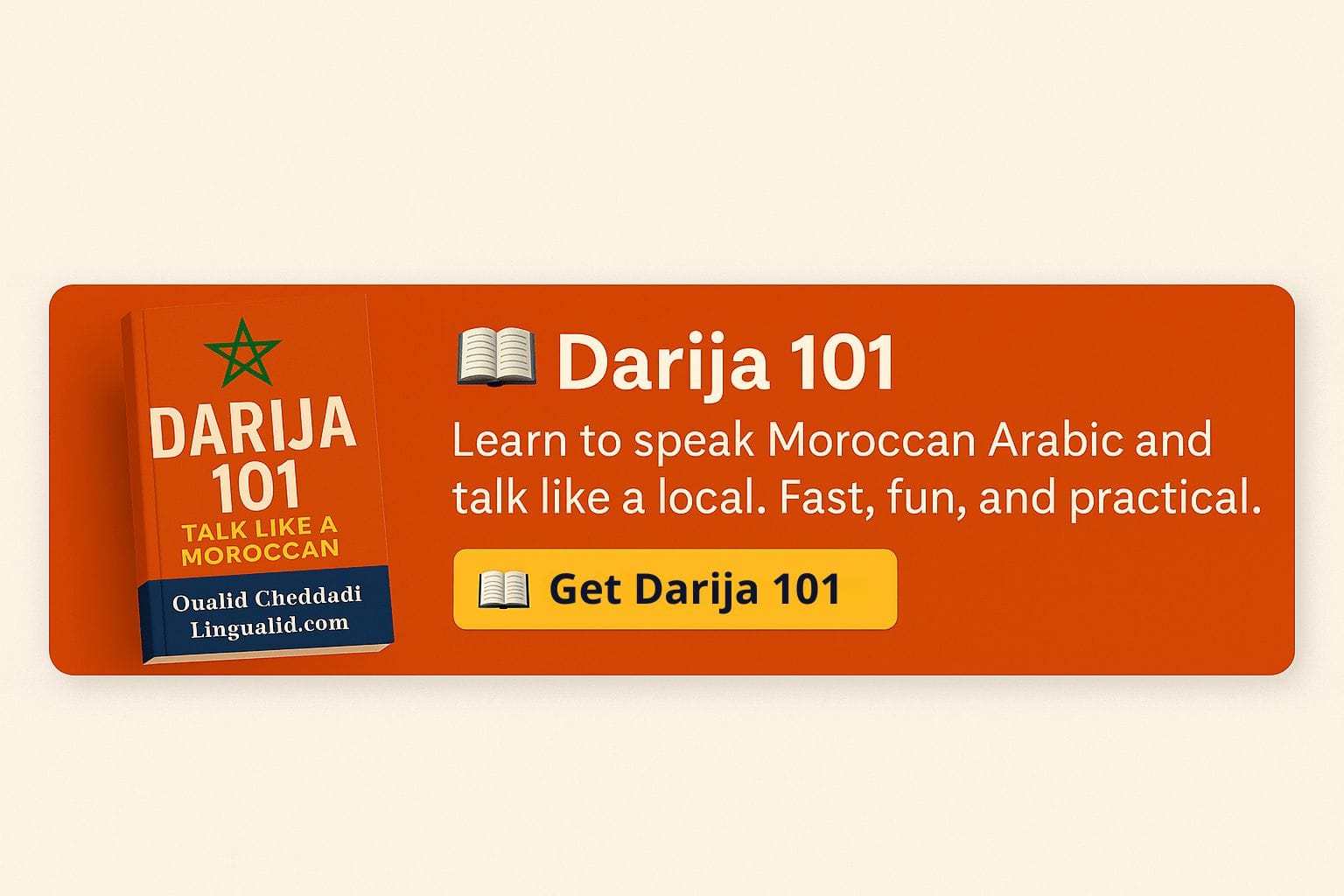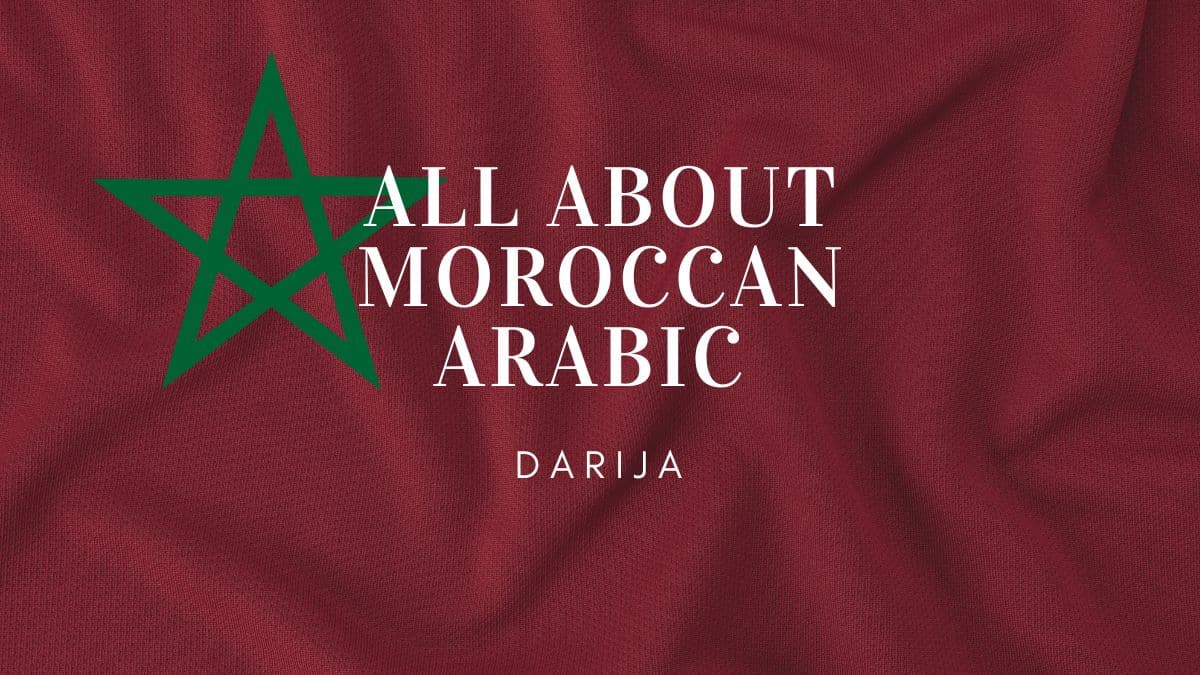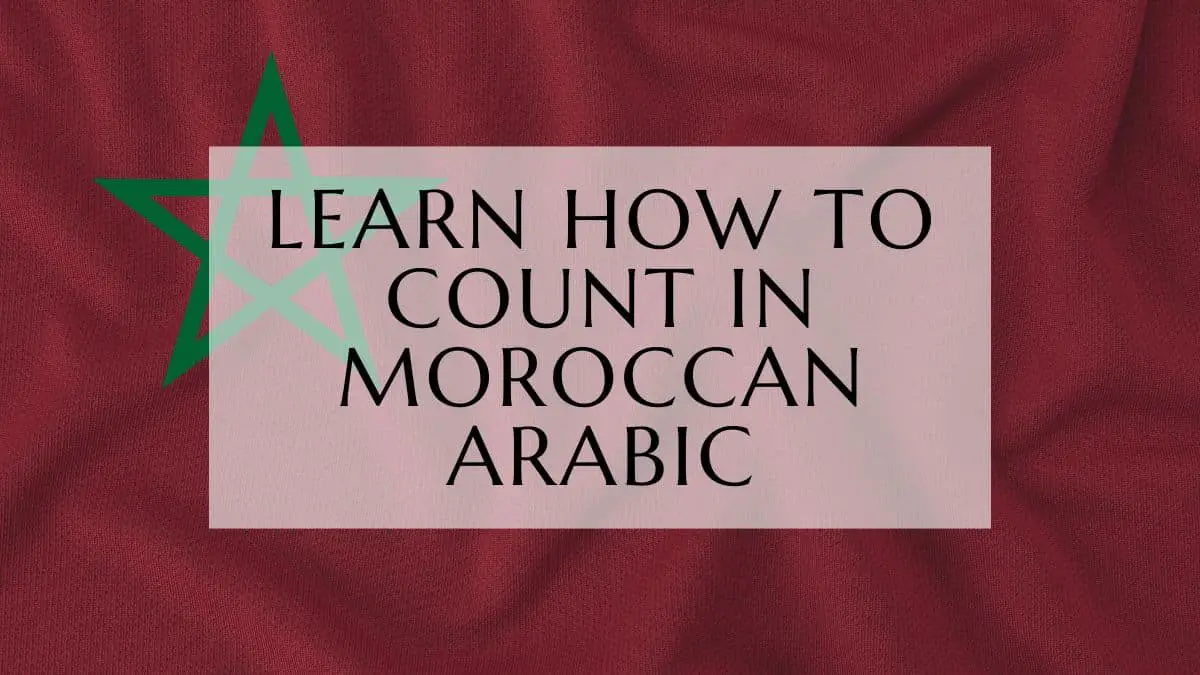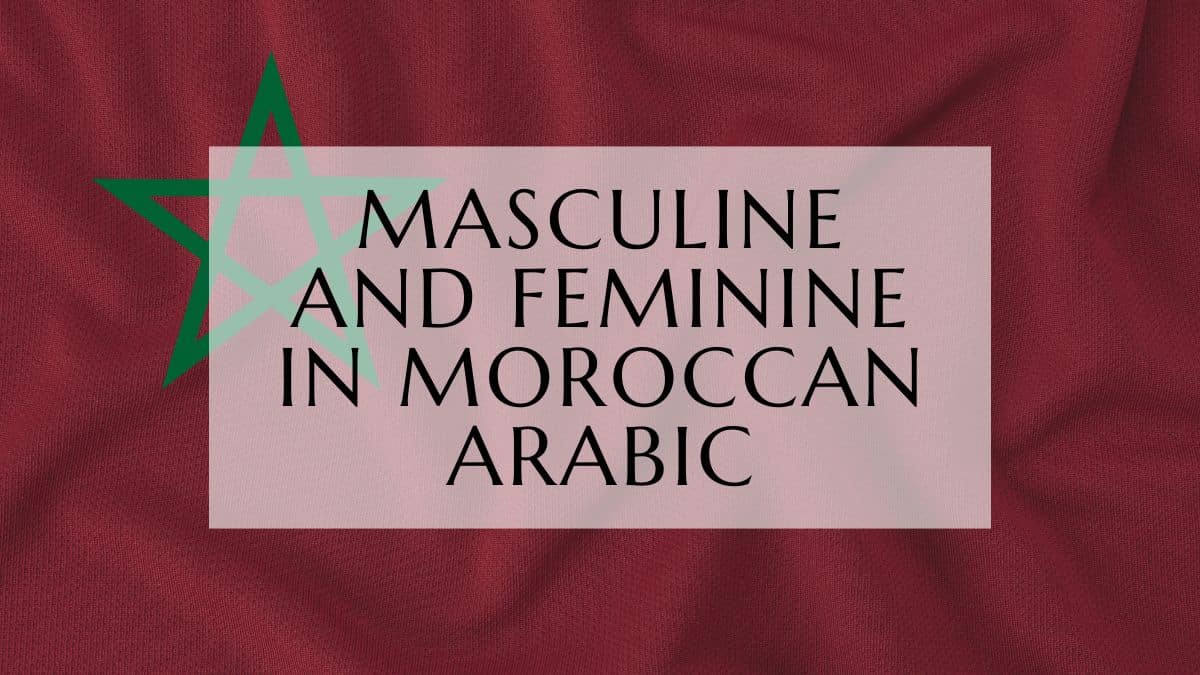Exploring Morocco’s vibrant culture means diving into its local language, Moroccan Arabic, or Darija. This guide gives you the key greetings and phrases for everyday conversations in Morocco. It’s perfect for anyone planning a trip or just curious about Moroccan culture. You’ll learn how to make a great first impression and connect with locals easily.
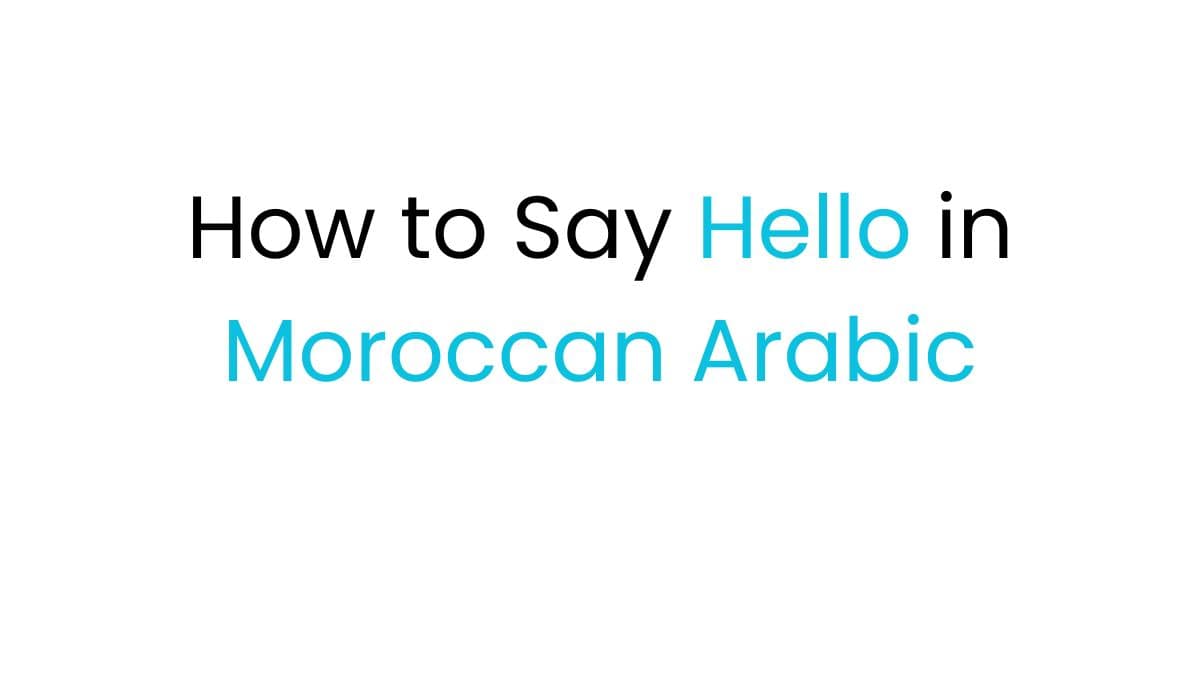
This article covers everything from the formal “as-salām ‘alaykum” to the casual “sbah lkhir.” You’ll learn various ways to say “hello in Moroccan Arabic” for different situations. Discover the beauty of Darija and its importance in Moroccan culture.
Introduction to Moroccan Arabic (Darija)
Moroccan Arabic, or Darija, is the everyday Arabic spoken in Morocco. It’s a special type of Maghrebi Arabic shaped by the Amazigh language, French, and Spanish over time. Darija is mainly spoken and not often written in Arabic script. This makes it a unique dialect in the Arabic language family.
Overview of Moroccan Arabic
Learning the basics of Moroccan Arabic is key to talking with locals. Darija has its own words, ways of saying things, and rules that are different from Modern Standard Arabic or other Arabic dialects. For example, someone might say “3ndi Tlatin 3am” to mean “I have 30 years.”
Importance of Greetings in Darija
Greetings are very important in Moroccan culture. Knowing common Darija greetings helps you connect, show respect, and have better conversations with Moroccans. Saying the right greetings and asking about someone’s well-being can make daily interactions smoother and leave a good impression. For instance, “Fin Katsokni?” means “Where do you live?” in Moroccan Arabic.
Greetings and Introductions in Moroccan Arabic
Learning how to greet and introduce yourself in Moroccan Arabic is key to connecting with the culture. Moroccan Arabic, also known as Darija, has its own phrases and customs. These can help you make a great first impression. Let’s look at the best ways to say hello in moroccan arabic and introduce yourself or others.
Introducing Yourself in Darija
When you meet new people in Morocco, you’ll often introduce yourself. You’ll share your name, where you’re from, what you do, and what you like. Here are some phrases to help you start:
- My name is… (أنا سميتي…) ana smiti
- I am from… (أنا من…) ana men
- I live in… أنا كنعيش في…) ana kan’iich f
- I work as… (أنا كنخدم…) ana kanekhdem
- I love… (كيعجبني…) kay’jbni
Introducing Others in Darija
Introducing someone else is similar, but you add their name, how you know them, and a little bit about them. Here are some examples:
- This is my friend… (هذا صاحبي…) had sahbi
- This is my colleague… (هذي زميلتي…) hadi zamilti
- He is from… (هو من…) howa men
- She works as… (هي كتخدم…) hiya katekhdem
- He loves… (هو كيعجبو…) howa kay’jbou
Learning these common phrases in moroccan arabic for introductions will help you connect with people in Morocco. You’ll feel more confident in social situations.
| Moroccan Arabic Phrase | Transcribed | English Translation |
|---|---|---|
| أنا سميتي… | ana smiti | My name is… |
| أنا من… | ana men | I am from… |
| أنا كنعيش ففي… | ana kan’iich f | I live in… |
| أنا كنخدم… | ana kanekhdem | I work as… |
| كيعجبني… | kay’jbni | I love… |
Essential Phrases for “hello in Moroccan Arabic”
Formal and Informal Greetings
Learning to greet in Moroccan Arabic, or darija, is key to cultural understanding. It’s vital whether you’re in a formal meeting or a casual hangout. Knowing the right formal greetings in Moroccan Arabic and informal greetings in darija is crucial.
“As-salaam alaykum” is a common way to say “hello.” It means “Peace be upon you.” Moroccans use it a lot. “Sbah lkhir” means “Good morning” and is another formal greeting. For something more casual, “Marhba” or “Ahlan” work well.
Responding to Greetings
It’s just as important to know how to respond in greetings in Moroccan Arabic. When someone says “As-salaam alaykum,” you say “Walaykum as-salaam,” which means “And upon you, peace.” “sbah lkhir” is a good answer to “Sbah lkhir,” as simple as that.
Getting to know these formal and informal greetings in Moroccan Arabic and responses in darija will help you in social situations. You’ll feel more confident and respectful.
Useful Expressions in Darija
Moroccan Arabic, known as Darija, has many useful expressions and phrases. These can make your conversations better. From asking for clarification to showing basic courtesies, learning these expressions helps you talk more smoothly.
Asking for Clarification
Need to make sure someone understands you? Use “fhmti?” (Did you understand?). These phrases help make sure your message gets through clearly.
Basic Courtesies
Learning polite expressions in Moroccan Arabic is key for everyday interactions. Saying “afak” (please), “shukrun” (thank you), and “smahli/smahaliya” (excuse me) shows respect. It also helps you connect with people.
Other useful phrases are “iyah” (yes), “la” (no), and “ma’arft” (I don’t know). Knowing these can make your conversations more meaningful. It also makes dealing with Moroccan social situations easier.
Tips for Mastering Moroccan Arabic Greetings
Learning Moroccan Arabic greetings takes practice and a desire to dive into the language. Here are some tips to help you get better at Darija greetings. These will improve how well you can talk in Moroccan Arabic:
- Practice with Native Speakers: Talk with native Moroccan Arabic speakers as much as you can. This could be through language exchange programs, making local friends, or joining the Moroccan community in your area. Talking directly with them will make you more comfortable with the language’s rhythm, pronunciation, and the way Darija greetings work.
- Immerse Yourself in Moroccan Media: Get to know Moroccan Arabic by watching local TV, listening to Moroccan music, and using other Moroccan media. This will make you more familiar with common greetings and the language’s flow.
- Learn Formal and Informal Greetings: Know the difference between formal and informal greetings like “Assalam ‘leykum” (formal) and “Salam ‘leykum” (informal). Getting this right helps you talk right in different social situations.
- Explore Regional Variations: Moroccan Arabic changes across regions, and some greetings are used more in certain places. Learn about these differences to improve your language skills.
- Practice, Practice, Practice: The best way to get good at Moroccan Arabic greetings is to practice every day. Make time each day to review and practice phrases, and try using them when you can.
By using these tips and strategies, you’ll get better at improving your Darija greetings. This will help you communicate better in Moroccan Arabic.
Cultural Etiquette for Greetings in Morocco
Greetings in Moroccan culture are very important. They show respect and help make a good first impression. It’s key to know the cultural background of Moroccan greetings to interact well.
Significance of Greetings
In Morocco, greetings are more than just saying hello. They are a big part of the culture, showing the country’s deep history and religious beliefs. Saying hello the right way shows respect, kindness, and real interest in others.
It’s important to use the right way of speaking and body language when greeting. Not doing so can be seen as rude or even rude.
| Cultural Etiquette Aspect | Significance in Moroccan Greetings |
|---|---|
| Form of Address | Moroccans often ask about your family and kids when they meet you for the first time. This shows they value these things a lot. |
| Non-Verbal Cues | Using your index finger to call someone over is seen as rude in Morocco. The right way is to use your palm down and wave your hand towards you. |
| Social Protocols | It’s the custom to take off your shoes inside, wash your hands before eating, and wait for the host to bless the food before eating with your right hand. |
Knowing and following the etiquette of greetings in Morocco helps visitors make strong connections. It builds trust and leaves a good impression, making their visit better.
Additional Resources for Learning Darija
Now that you’ve learned how to say hello in Moroccan Arabic (Darija), If you want to improve your Moroccan Arabic skills, there are many resources to help you. You can find language exchange partners or watch Moroccan TV shows and movies. These options can make you better at speaking with Moroccans.
Our website contains plenty of other lessons and resources to help you learn Moroccan Arabic: check them out in the link below:
Oualid Cheddadi is the founder of Lingualid, a platform that inspires independent language learners worldwide, regardless of the language they are learning. The name “Lingualid” is derived from the Portuguese word for “language,” “língua,” and the last three letters of Oualid’s name, “Lid.”

